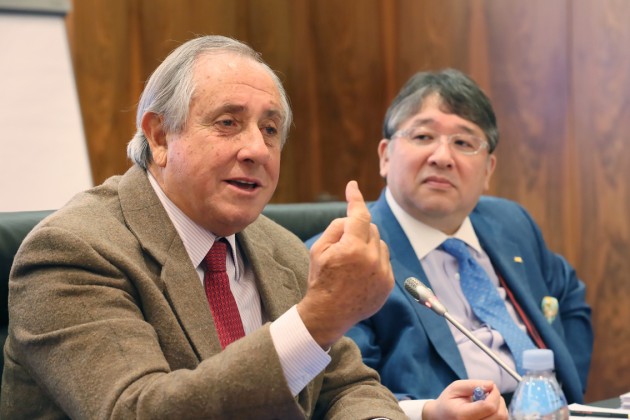
FIVB President Dr. Ary S. Graça F°
Topics examined during sessions overseen by FIVB President Dr. Ary S. Graça F° and Medical Commission President Dr. Yuichiro Hamu included the FIVB’s Injury Surveillance System, Heat Stress Monitoring, Referee Health Management Programme and the Medical & Anti-Doping programme.
The FIVB wants to make all efforts possible to educate volleyball and beach volleyball players, medical personnel, doctors and physiotherapists on the rules concerning Anti-Doping, and the launch of the Anti-Doping Education Programme is among the FIVB Medical Department’s initiatives to that end. Since the launch of this initiative in 2010, over 7,400 users have completed it.
The FIVB is pleased to announce that the Education Programme is now available in German, Russian and Portuguese, in addition to the existing languages of English, French and Spanish.
The FIVB firmly believes that it is vital for athletes and medical personnel to be aware of the rules concerning Anti-Doping. The online Anti-Doping education programme provides an interactive learning experience made up of videos and questions on a range of Doping topics, including Therapeutic Use Exemptions (TUEs), Whereabouts and Dietary Supplements. Real-life situations form the basis of the scenarios and users are tested with engaging exercises.
Once players have completed the programme they are presented with an Anti-Doping certificate to prove they have been informed and educated on the rules and regulations regarding testing. Athletes wishing to play in FIVB volleyball competitions or on the FIVB Beach Volleyball World Tour must acquire this certificate to confirm they have gained knowledge in the important subject of Anti-Doping.
For more volleyball news click on latest news.